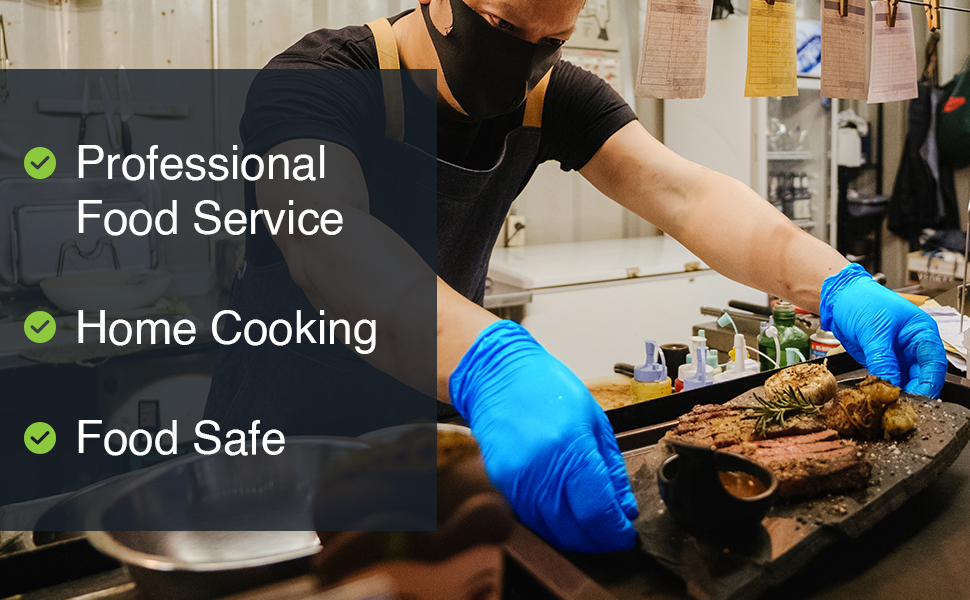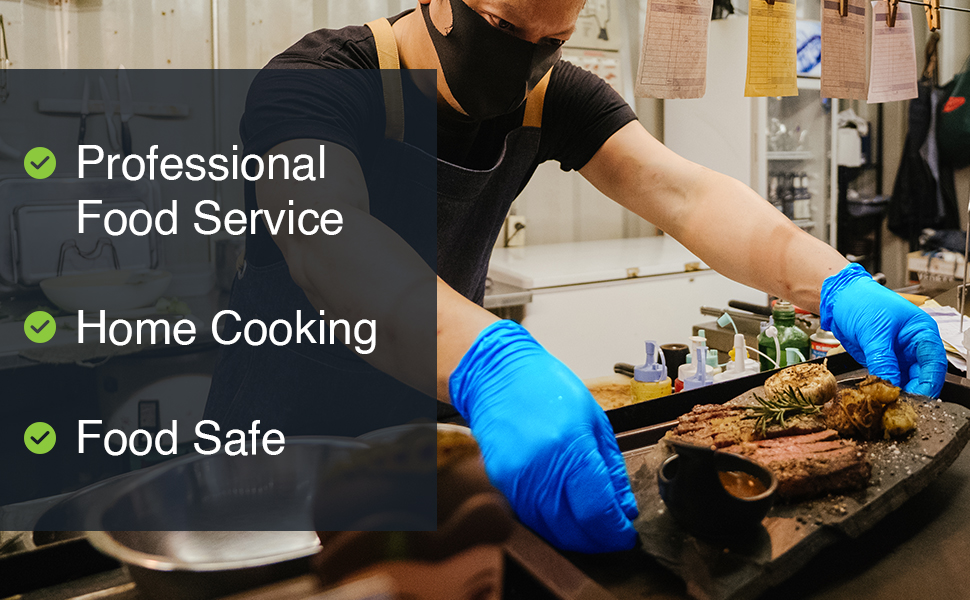Industry News
The Importance of Ethical Sourcing in Glove Production
In the production of medical gloves, particularly those crafted from nitrile, ethical sourcing is the cornerstone of integrity and responsible manufacturing. This process begins at the very inception of the supply chain—those verdant rubber plantations where the story of each glove begins. Here, we must insist on fairness and sustainability, ensuring that the hands which toil to tap the rubber are treated with the dignity and respect they deserve. As these materials journey to the factories, our standards for ethical labor practices must follow, ensuring that every worker in every stage is afforded a safe and just working environment.
The importance of ethical sourcing transcends the simple act of procurement; it's a commitment to the health of our planet and its inhabitants. This commitment to ethical sourcing is more than altruism—it's a strategic imperative. In a market that increasingly values corporate responsibility, manufacturers who adopt ethical sourcing are not cultivating goodwill but are also building
Transparency in Sourcing: From Rubber Plantations to Factories
Sure thing. Transparency is not only a keystone of ethical glove production; it's a commitment to moral clarity at every step of the supply chain. This journey starts in the rubber plantations where the sap is tapped. It's imperative to ensure that the rights and health of the workers are front and center—no child labor, fair wages, and safe working conditions. Moving along to the factories, transparency takes the form of open disclosure about manufacturing processes, employee welfare, and environmental impacts. It's about holding ourselves accountable and allowing our customers to verify that the products they use, especially something as crucial as medical gloves, are free from the taint of exploitation and ecological harm. This level of openness isn't just good ethics—it's good business. It fosters trust, loyalty, and a shared sense of purpose in advancing healthcare with integrity. It's a truth we must uphold from the plantation to the patient.
Certifications and Standards for Ethical Nitrile Glove Manufacturing
In the domain of nitrile glove manufacturing, certifications and standards are the bedrock of ethical production. They serve as a robust framework within which manufacturers must operate, guaranteeing that their gloves not only meet the required performance criteria but are also produced under equitable labor conditions and with minimal environmental impact. These certifications—be they from international bodies like the ISO, or specialized medical accreditations—act as a seal of approval. They demonstrate a manufacturer’s dedication to upholding high ethical standards in every aspect of production, from sourcing materials responsibly to ensuring workers’ rights are respected.
But why should we place our trust in these certifications? Because they are often backed by rigorous audits and assessments by third parties, offering a level of scrutiny that goes beyond self-reporting. Adherence to these standards is not static; it's an ongoing process, necessitating continual improvement and transparency. In a world where the medical glove market is expanding, especially due to increased awareness post the novel coronavirus outbreak, these certifications are critical. They reassure healthcare providers and patients that the gloves they rely on come from a supply chain grounded in ethical integrity and social responsibility, all while maintaining the highest level of quality for safe patient examination and infection control.
The Role of Governments in Regulating Glove Production
Governments aren't just there to collect taxes; they play a pivotal role in regulating glove production. Their laws and regulations act as a compass, guiding manufacturers towards ethical practices. These regulations cover everything from labor rights in rubber plantations to environmental standards in factories. The goal? To ensure that the production of nitrile gloves doesn't harm people or the planet. It's a complex dance, balancing industry needs with ethical obligations, but it's essential for the integrity of the medical gloves industry.
Consumer Power: The Impact of Choosing Ethical Nitrile Gloves
As consumers, we hold immense power in our hands—quite literally when it comes to choosing nitrile gloves. Every purchase is a vote for the kind of practices we support in the medical industry. Opting for gloves from a transparent, ethically-conscious supply chain sends a powerful message. It says we care about the welfare of workers, the environment, and ultimately, the integrity of the healthcare services we rely on. By choosing ethical gloves, consumers can drive change, encouraging more manufacturers to adopt responsible practices.
Building a Responsible Supply Chain: Best Practices for Businesses
Businesses have a profound opportunity to lead the charge in ethical nitrile glove production. By crafting a responsible supply chain, they can illuminate the path for the entire industry. Best practices are not just checkboxes but milestones in a journey towards excellence and integrity. They're about embracing rigorous audits that ensure compliance with labor and environmental laws, about forming enduring partnerships with suppliers who share a commitment to ethical practices, and about implementing robust policies that protect workers and ecosystems alike. A responsible supply chain is not merely a conduit for goods but a statement of values, a testament to a company's steadfast commitment to doing right by people and the planet. It's a conscious choice to prioritize the health and safety of workers, to reduce the carbon footprint, and to ensure that every glove that protects life does not come at the cost of livelihoods or the environment. In doing so, businesses do not just meet expectations—they set them, establishing themselves as paragons of sustainability and ethics in an industry that holds human life in its hands.
The Future of Nitrile Glove Production: Sustainability and Ethics
Looking ahead, the future of nitrile glove production is set to be shaped by two powerful forces: sustainability and ethics. Innovations are already underway, with companies exploring bio-based materials and recycling programs to reduce environmental impact. Ethical considerations are also guiding new business models and collaborations that aim to uplift communities involved in glove production. This forward-thinking approach is not just about adapting to change; it's about leading the charge in creating a more sustainable and equitable industry.
Taking Action: How You Can Support Ethical Glove Production
Taking action for ethical glove production transcends mere choice—it's a commitment to informed decision-making and advocacy. Educate yourself on the production conditions and the impact of your purchase. Choose gloves that are the product of fair labor and environmental care. Your choice has power: it can shift market demands, promoting ethical practices.
Raise your voice for transparency in the supply chain. Advocate for changes in policies and practices by connecting with lawmakers and spreading the word. Every effort counts, from sharing information to supporting organizations advocating for laborers' rights.
In essence, buying ethically-sourced nitrile gloves is an active stand for human dignity and ecological sustainability. It's a small but powerful step in the larger march towards a conscientious global market. So let's make our choices matter and wield our consumer power for good.
Conclusion
In conclusion, ethical nitrile glove production is not a peripheral concern—it's central to the integrity of the healthcare industry. It's about safeguarding the wellbeing of workers, protecting our environment, and ensuring that the tools we use in critical medical procedures are produced under conditions that do not compromise our moral and ethical standards. By embracing transparency, supporting rigorous certifications, and leveraging consumer power, we can contribute to a market where ethical production is the norm, not the exception. It's a collective journey toward a future where every pair of gloves tells a story of fairness, sustainability, and respect—a future where our health is protected without compromising the health of those who manufacture these essential products. The path to this future is paved with every choice and action we take today. So let's make those choices count and advocate for a brighter, more ethical tomorrow in nitrile glove production.







